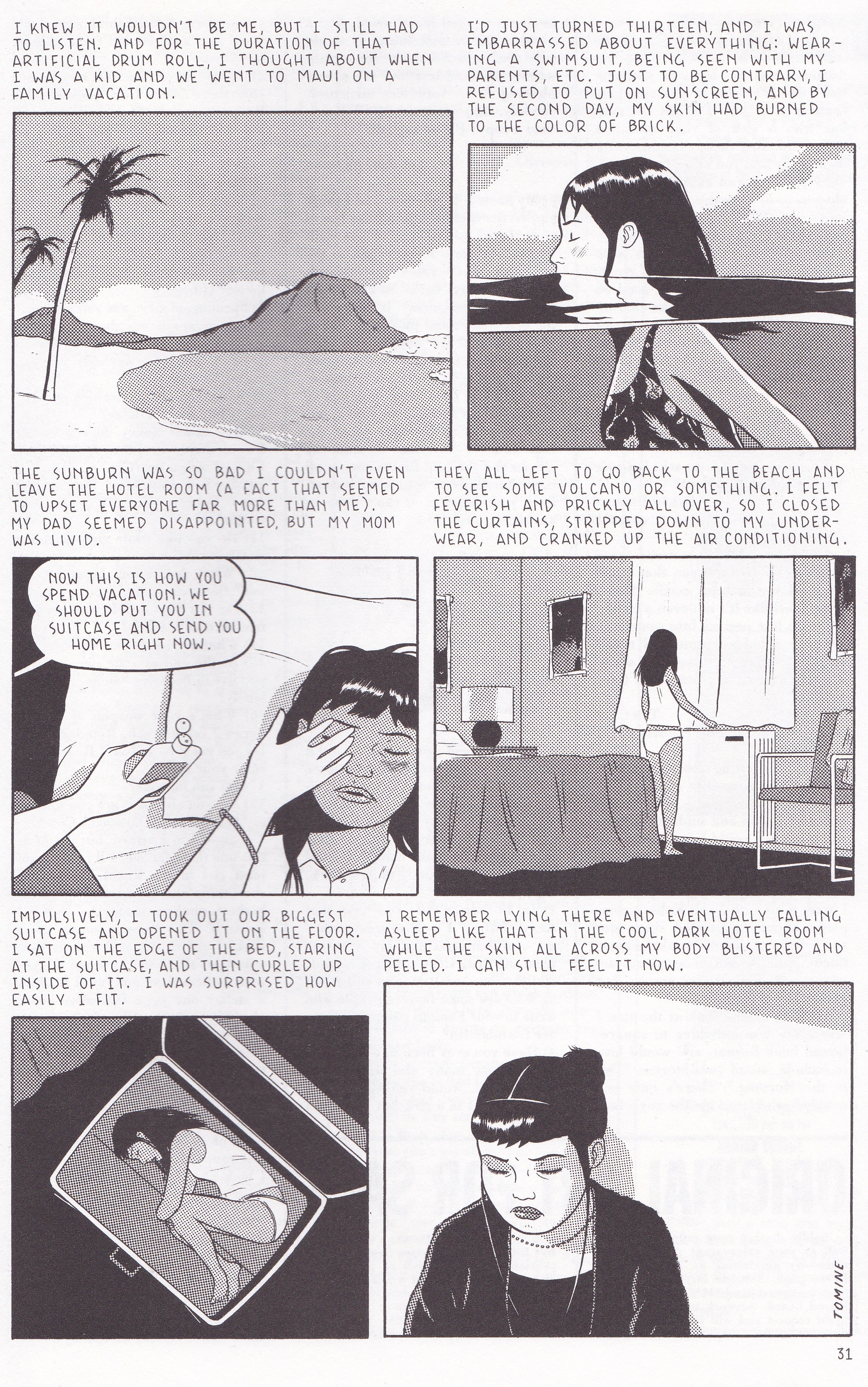

His peevishness about the frequent mispronunciation of his last name, for example, seems out of proportion and not self-aware of the fact that it’s mostly read, not said, by his fans.Īs his talents become increasingly manifest in accomplishment, he confronts the challenges of fame (always with the constant counterpunch of it being “comics fame”)-dealing with fandom, criticism and backlash. Tomine’s follows the same path, with the added element of his encounters with life as an Asian American, which amplifies his sense of being an outsider even as his star rises.

The insular life of the cartoonist often leads to a small circle of experiences and a deep well of introspection and heightened awareness of the business of ordinary life.

(He prefaces the book with a quote about being a famous cartoonist from the slightly more famous cartoonist Dan Clowes, “That’s like being the most famous badminton player.”) In Adrian Tomine’s “The Loneliness of the Long-Distance Cartoonist,” he assembles a series of autobiographical sketches spanning his entire career, mostly concentrating on his grappling with fame or the lack thereof. Self-deprecation is a chronic condition among cartoonists, its severity worsening with talent.


 0 kommentar(er)
0 kommentar(er)
